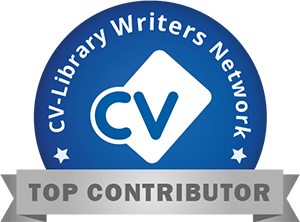CEIAG for Headteachers, Governors and SLT
- Balancing Careers Statutory Duty, Budget & Students’ Wants.
Balancing Careers Statutory Duty, Budget & Students’ Wants.
Tuesday 15th April 2014
As headteacher, one of the less palatable jobs is balancing the requirements of statutory duty, the needs of your students and by necessity in these cash strapped times, prioritising the things you have to do. Whatever, the criteria you use to make your decisions, most head teachers are still mindfull of what students want and need.
Thus in the wake of the publication of the new careers statutory duty and advice documents by the DFE and the exclent Careers Engagement – a good practice brief for leaders of schools and colleges I thought I’d bring the following to your notice.
In the joint Pearson & Teach First survey of over 8000 young people, called My Education; one of the first things that strikes you is this student comment
My opinion is important because…
As a student, I don’t have complete control over my choices, and others need to know how to help me.
Cutting to the chase the results lead to the conclusion, taken from the My Education website.
Students taking part in the My Education debate groups often said it was difficult for them to connect the relevance of school and learning to their future work aims.
There appear to be three causes of the disconnection:
1) Little association between lesson content and career preferences;
2) Teachers not knowing their pupils’ hopes and dreams;
3)Inadequate opportunities to gain foundation ‘life’ skills.
So it’s clear that both the DFE & students want better correlation between school and employment. What is the opportunity cost to you the head teacher of governor?
To be able to put effective CEIAG in place in a school a recent NFER/ASCL report suggests the the following is necessary
- Widespread agreement of the principles of effective CEIAG
- Extensive collaboration that always puts the interest of the young person first
- Widespread understanding, led by schools’ and colleges’ senior leaders, that accepts that CE£IAG is more challanging and more important for future economic prosperiety than previously.
The DFE Advice – in it’s simplest terms boils down to:-
- Define the need and method of delivery
- Build and maintain links with employers
- Ensure there is an evaluation cycle
- Set clear goals for CEIAG
- Inform pupils and parents of support available.
So, however far you go down the line of prioritising CEIAG, you WILL need an in house coordinator or an external facilitator. I’ll leave you to work out which is cheaper or best value for your school. However, one of the most effective options, I believe, is the engagement of a ‘in house’ careers adviser to not only deliver qualified and impartial advice to pupils, but also help to co-ordinate and quality assure activities and to document and supervise your school’s framework.





